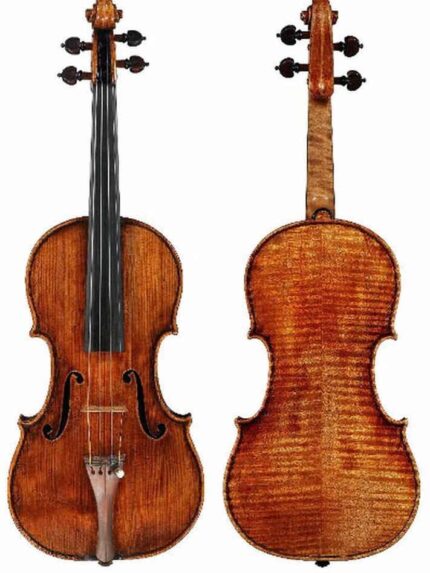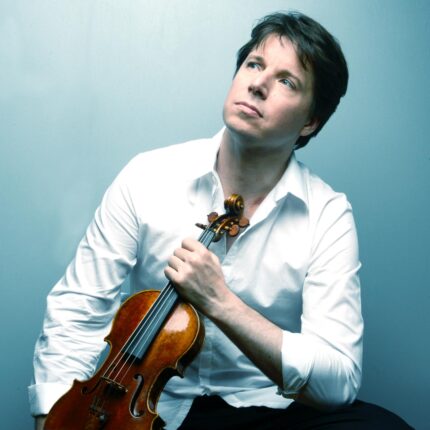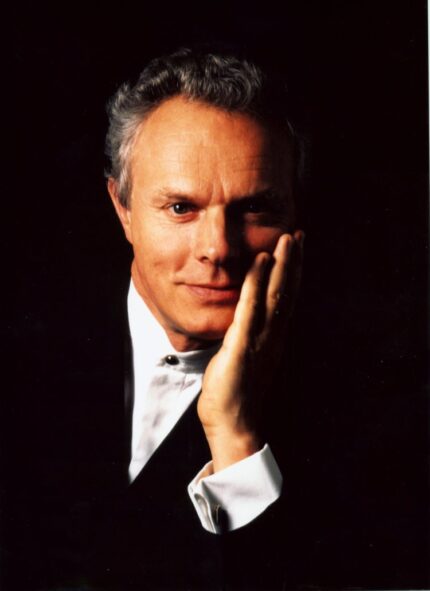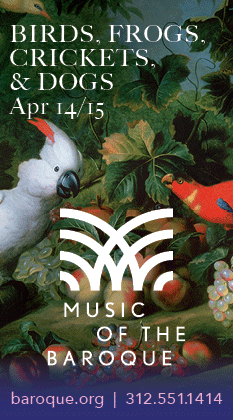CSO opens subscription concerts with a maestro switch, Joshua Bell in two works, and a debut by a 268-year-old

After the bifurcated double-reverse of last weekend’s gala events, the Chicago Symphony Orchestra got down to business, opening its subscription season with a program of familiar warhorses, albeit not without some 11th-hour drama.
Roberto Abbado withdrew from this week’s concerts due to a serious post-surgical infection. Fortunately, Yan Pascal Tortelier was able to stand in, a timely substitution for a program heavy on works of the French conductor’s compatriots.
Still, the originally announced program looked much more compelling on paper than what was offered Thursday night with both Bruch’s Scottish Fantasy and Honegger’s Horace victorieux—a real curio— replaced by more populist fare.
But with the ever-reliable Joshua Bell in the spotlight as solo protagonist, the music-making was largely on the high level expected, though the celebrated American violinist’s performances were to some extent, upstaged—or mitigated—by the debut of his 268-year-old instrument.
That would be the 1741 “ex-Vieuxtemps” Guarneri del Gesu, on loan from Chicago’s Stradivari Society. The $18 million violin, said to be the favored instrument of the Belgian composer-virtuoso Henri Vieuxtemps–and, later Yehudi Menuhin—is being played in the U.S. for the first time at these concerts.

With Max Bruch’s expansive, richly melodic and rarely heard Scottish Fantasy dropped, it was the composer’s short, richly melodic and overplayed Violin Concerto No. 1 in G minor that was performed. The del Gesu has a wonderful luminous purity and slender crystalline sound, qualities heard to best advantage in the Adagio, rendered by Bell with a sweet, consoling intimacy.
Yet for all its refinement and historical significance, the del Gesu didn’t always seem like a grateful instrument, for Bell or for Bruch. The soloist really had to work to make the instrument project in tuttis and dramatic passages. Due to its light timbre, this was a more interior reading of the concerto than usual, with the accompaniment accordingly scaled down by Tortelier.
The instrument, surprisingly, proved better suited to Saint-Saens’ Introduction and Rondo capriccioso, not heard at downtown subscription concerts for twelve years. Here, Bell’s affection and facility for French repertorie was manifest, his light bowing teasing out the fantasy and charm of Saint-Saens’ off-center showpiece with insouciance and bravura.

Tortelier, principal conductor of the Sao Paulo Orchestra (which makes its Chicago debut Monday night), has shown himself a master of his native French repertoire in performances with other top international orchestras. Eschewing both baton and score, the French conductor for the most part burnished that reputation with the two non-concerted works.
The Saint-Saens Organ Symphony is such a fail-safe showpiece that it virtually plays itself. Yet Toretelier made his imprint, leading a worthy, adroitly balanced and well paced performance that allowed the thematic richness and sheer audacity—organ against large brass and four-hand piano part—-to shine. Perhaps some of his direction was marginally fussy but Tortelier effectively held the brass in reserve for the clamorous final bars. Henry McDowell was the admirable organist, and the CSO provided largely polished playing though the flutes sound a bit unsettled in the wake of Mathieu Dufour’s departure for L.A.
While the once-in-a-lifetime chance to hear the Honegger work was missed, its replacement, the suite from Faure’s Pelleas et Melisande afforded the most simpatico partnership between Tortelier and the orchestra of the evening. Tortelier drews playing of airy lightness and a relaxed gracious lyricism from the CSO members that provided eloquent advocacy for Faure’s lovely score.
The program will be repeated 8 p.m. Friday and Saturday. www.cso.org; 312-294-3000.
Posted in Uncategorized




